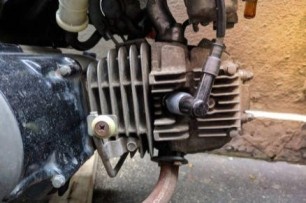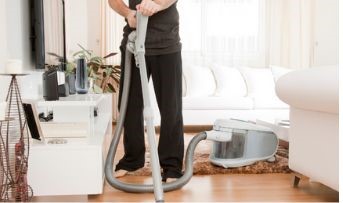General Insurance Blogs, Articles & Updates by - Magma Insurance
Have us call you
- RENEW YOUR POLICY
- BUY NEW POLICY

How early immunisation can help your infant have a healthy life
For more than five decades now, immunisation has saved billions of lives. It's a low-cost, high-impact strategy to safeguard your child's health against various diseases and infections. Immunisation builds the groundwork for a healthy future.
Vaccines are critical in protecting the most vulnerable, such as children and infants. However, one out of every five children in the world is still unvaccinated. Having the highest number of unvaccinated children, India has strengthened its efforts to enhance mass vaccine coverage with mission Indradanush 2.0.
Over the last few decades, healthcare has become increasingly expensive. A health insurance policy can come in handy during costly treatments and hospitalisations. So, look for online health insurance companies to buy a policy to secure your child's future and cover them under seamless benefits. To find out more about immunisation, continue reading this article.
What is immunisation?
Immunisation is the process that protects people against illness caused by microorganism infection (formally called pathogens) by increasing the immunity of the body to combat these infections. A vaccine is a biological substance used for immunisation.
How does immunisation work?
When immunised against a disease, your body treats it as a natural infection. A vaccine contains a microorganism that is introduced into the body in a dead or weakened form. However, your immune system has no way of knowing whether the virus is alive or dead, so it takes it as a red alert and treats it as a threat. As a result, the immune system produces antibodies to attack the virus and eliminate it from the body.
As a result, if you acquire a similar virus in the future, your immunity will be prepared to combat that virus and shield your body against its infection. According to a World Health Organization report, immunisation saves an estimated 2-3 million lives each year (majorly children) by protecting against diphtheria, pneumonia, pertussis (whooping cough), rotavirus, diarrhoea, rubella tetanus, smallpox, polio, mumps, and measles.
Immunisation has eradicated many terrible diseases that massacred people in clusters and tons. Despite this, an estimated 19.5 million infants have not received all immunisations. The need to adequately communicate the health advantages of vaccination and the risks of not immunising children cannot be overstated.
Importance of early immunisation:
Most health experts, researchers, and professional medical organisations strongly recommend immunisation. Vaccines are the most effective steps to prevent infectious diseases.
Vaccine-preventable diseases are known to induce childhood stunting, leading to poor growth, poor adult health, and lower learning ability in children. But, getting your infant vaccinated at the right time can prevent them from having to experience such situations.
Vaccinations are an essential factor in determining your children's health. Shots for children are only effective if they are given on time and according to schedule. They aid in developing children's immune systems, allowing them to grow up healthy and happy. The development of cognitive abilities is also observed after vaccination.
Alongside vaccination, it is essential to buy comprehensive health insurance for your child to secure their health and life further. You may look for online health insurance companies and browse through different plans, compare their premium, and then choose the one that fits all your requirements.
Click HERE to know more about health insurance.
Disclaimer: The information provided above is for illustrative purposes only. To get more details, please refer to policy wordings and prospectus before purchasing a policy.

Five tips for parents before they send their kids off to university
As kids turn 18, they begin to own up to their duties of seeking higher education and building a career. They get ready to set off to universities to pursue their dreams and take up multiple responsibilities as adults. This phase is often hard for parents as they won't be able to guide their children through it.
As they deal with the empty nest syndrome, they are also constantly worrying if their children are capable enough to make it on their own. As per research conducted by New York University (NYU), this rapidly changing phase in life is the best opportunity for parents to explain to their children the realities of college life. They could shed some light on the pressures of adulthood, academic expectations, varying social situations, and personal responsibilities that will soon become significant elements of their lives.
It is never too late for parents to indulge in teaching their kids some skills that will help them in the long run. Here are some tips for parents to prepare to send their kids off to university.
1. Cooking and cleaning:
After years of protective parenting, living by themselves can be challenging to adjust to. Learning how to cook a nutritious meal for themselves is key to remaining fit during these college years. Parents can teach their kids to prepare a few basic, healthy meals that should suffice them as beginners.
Cleanliness is another integral part of adulthood that reflects in daily habits. Regularly doing laundry, cleaning their living space, and washing dishes should be essential habits.
2. Healthcare and first aid:
Teaching youngsters about primary healthcare is essential. Familiarising them with the appropriate medication and basic first aid can help them in times of need. It is necessary to educate them about the importance of prioritising fitness, a healthy diet, and regular exercise.
3. Budgeting:
Parents must teach their young adults about budgeting their monthly basic needs. It's crucial to know how to allocate funds for essentials such as groceries, medicines, cleaning supplies, rent, electricity, and other personal requirements.
If they seem comfortable with the idea of employment, you can inspire them to take up part-time jobs to gain a bit of extra monetary benefit. You can also push them to take up worthy internships during their vacations to build their resumes and develop considerable skills.
4. Networking:
While in university, students have a chance to build a strong network of meaningful connections among the wide variety of people they encounter. Parents must highlight the importance of developing solid relationships with not only fellow students but also the professors and faculty members of the university. This may help them receive multiple rewards and gain opportunities to build their future.
5. Security measures:
It is vital to inform children about the basic security measures, such as avoiding any stops in lonely areas at night, covering their drinks, so they don't get spiked and keeping their belongings safe while travelling.
These minute but crucial details are essential when kids head into adulthood. Security is paramount, and prioritising it should be the kid's responsibility, not just at the university but even elsewhere.
To sum it up, while this phase of your kid moving out for university can be emotional, foresee it as a learning period that can shape the future of your children. Teaching them about how to go about their responsibilities, security, and healthcare is vital before they leave.
Apart from these essential lifestyle things, it would help to guide your children through the process of insurance planning. Securing health and assets under the umbrella of insurance adds great value and safety to our lives. For kids going to university, personal accident insurance plans are protective measures to help in accidents or emergencies!
Click HERE to buy the best personal accident insurance plans.
Disclaimer: The information provided above is for illustrative purposes only. To get more details, please refer to policy wordings and prospectus before purchasing a policy.

When should you use the handbrake while operating your car
A handbrake, sometimes known as an emergency brake or e-brake, is vital for your car's safety. We're sure you're well aware of what a handbrake is for: it holds your vehicle from rolling backwards once you've stopped. If you're new to driving, you may be confused about how a handbrake functions and when to use it. Is it only for emergencies or also for parking?
Read ahead for the answers to these questions and much more so that you can take advantage of your vehicle's most vital safety features. Another way to ensure the total safety of your car is to buy car insurance online.
How does a handbrake function?
The handbrake on a vehicle may be mechanical or electrical, based on its age, model, and gearbox. Unlike the footbrake, the handbrake is linked to the rear wheels of your automobile through a steel wire. It serves two purposes. First, it assures that you have a way to stop your car if the hydraulic brake fails. Second, it enables you to press the accelerator pedal while braking, facilitating more sophisticated driving tactics like drifting and flawless hill starts. When applying the handbrake, the metal cable goes through an intermediary gear before arriving at an equaliser, distributing power equally across the brake pads. This will eventually freeze the back wheels and cause the vehicle to come to a stop.
When should you use a handbrake?
It is all too common for inexperienced drivers to misuse their handbrake. For example, never use the handbrake while the automobile is still in motion.
You should only apply the handbrake in the following situations.
1. When parking:
Only use the handbrake when your vehicle has come to a complete stop after parking.
2. When stopping:
If you come to a halt at an intersection or a traffic signal, you should apply your handbrake. When you've come to a complete stop at a pedestrian crossing, activating your handbrake will keep your vehicle from moving forward.
3. While turning:
To prevent rolling against the curb while turning on a road that descends towards the sidewalk, proceed carefully, utilise clutch control, and use the brakes after each motion.
4. Following an emergency break:
To conduct an emergency stop, you must utilise your hand brake and, if operating a manual vehicle, then also your clutch pedal simultaneously. However, after your car has come to a complete stop, you should use the handbrake and shift it into neutral.
5. Hill starts:
After coming to a stop on a hill, using your handbrake in conjunction will keep your car from rolling backwards.
When it comes to operating your handbrake, like with any other area of driving, the more you practice, the more accustomed and confident you'll get. However, another thing to keep in mind is to buy car insurance online and save considerably in case your car faces any external damage or requires repairing and servicing. Driving without possession of insurance is against the law, and as a beginner, you'll need to have all the protection you can get.
Click HERE to buy car insurance online.
Disclaimer: The information provided above is for illustrative purposes only. To get more details, please refer to policy wordings and prospectus before purchasing a policy.

The complete guide to rock climbing for beginners
Rock climbing is an exciting adventure sport and a great way to stay fit. Today, several gyms incorporate rock climbing within their space settings to help people exercise and strengthen their bones and muscles. Many parents encourage their kids to try rock climbing established in recreation and amusement parks. Mountain climbing and mountaineering are different disciplines that come under rock climbing.
Rock climbing comes with its set of challenges. It requires expensive gear and training, which may not be readily available everywhere. Also, there is a degree of risk associated with the sport, given that you will be working with ropes and harnesses at certain heights. Safety is paramount while rock climbing. So, it is advisable to train formally before climbing in natural settings such as mountains, rocks, etc.
This blog will provide you with the complete guide to rock climbing for beginners. You will learn how to get started and various essential tips you'll need to know.
1. Gear:
Stop splurging on renting gear for climbing if you have decided to pursue it regularly. Purchasing your equipment is a wise long-term investment that will prove to be helpful. Also, check which gear you need as a beginner. You don't have to buy the ‘advanced’ level of equipment when you are just starting with rock climbing. Initially, you'll need climbing shoes, chalk and chalk bag, harness, headgear (helmet), etc.
2. Routine:
Now that you have decided to attempt rock climbing, you need to form a routine. Find time to practice regularly and seriously. To accomplish that, you can join a gym with rock climbing facilities or a training institute that provides regular rock climbing courses. Your trainer/coach can help you get familiar with the workouts, the footwork, etc., to develop the strength required for the sport.
3. Ease into the process:
You need to build a strong foundation before starting a more advanced stage in rock climbing. Give your body time to adapt to the different physical and mental stress levels of learning rock climbing. Pushing your body to do strenuous work can cause severe injuries or soreness in muscles, making it difficult to continue with the learning process.
4. Warm-up:
Warm-up exercises can help reduce the probability of severe injuries. These exercises boost your energy by pumping blood into your muscles. Your body can then accommodate different stress levels with ease while practising climbing. Some warm-up exercises include jumping jacks, squats, arm, wrist, ankle and foot circles. After these, you can head off to practice light and easy climbing, increase the intensity as instructed, and to the extent your body allows.
Rock climbing sounds intriguing. But as we discussed, it comes with a particular risk that can lead to severe injuries, harming your body in the process. While that seems quite unfortunate, a wise option to safeguard yourself is exploring the insurance market and purchasing the best personal accident policy in India to cater to all your needs. Insurance becomes helpful if the policyholder meets with an accident and requires medical care. So invest wisely and make your rock climbing journey hassle-free.
Click HERE to know more about how you can buy the best personal accident policy in India.
Disclaimer: The information provided above is for illustrative purposes only. To get more details, please refer to policy wordings and prospectus before purchasing a policy.

Healthy tips to help colour blind people lead an easier life
The eyes are one of the primary sensory organs, and they react to different colours in different ways. Colours enhance the feel and perception of people and things around us and have several psychological impacts on our mood, emotions, and behaviours.
Colour blindness is a visual deficiency due to which an individual can face difficulties in seeing specific colours or telling the difference between two colours under standard lighting. Most types of colour blindness issues are inherited during birth.
For people who are colour blind, routine tasks like driving or picking out a ripe fruit can become difficult. Since there is no particular cure, most people adapt and learn to live with this condition. However, many people don’t consider colour blindness a grave matter, and some don’t even get diagnosed. They spend their lives without acknowledging that they might have colour blindness or deficiency.
In this article, we will discuss some healthy tips that can make the lives of colour blind people easier.
1. Enquire about special glasses:
Special contacts or glasses might not solve your problem completely. But they can enhance your experience regarding colour blindness and help you visualise better. You can check in with your doctor to see how these glasses or contacts lenses work for you.
2. Ample lighting:
Make sure that your workspace and your house have plenty of lighting. Natural light in abundance is the best thing. In addition, it would be best if you tried to avoid glare.
3. Go digital:
You can use your smartphone or tablet to download and access applications that identify and name colours for you. Some gadgets have options where you can see shapes instead of colours. You can also use colour filters to tell the colours apart.
4. Look for signs:
You can look for different indications to incorporate into your daily activities. For example, to pick up a ripe pineapple, look for its weight (should be heavy), sweet smell, and easily pluckable leaves. You can also ask the vendor to help you out or order fruits and vegetables online.
5. Managing work:
Charts, graphs, and presentations are expected to have a lot of colours to distinguish the components of the data. If you’re someone who struggles with colour blindness, you can add detailed labels and texts to explain the differences to your peers.
Sending links for reference can be a good option too. Many colour blind people get certified as pilots but might face certain restrictions like flying at night, etc.
Never consider colour blindness as a disability. It is just a medical condition, and if you learn to adapt to it, you will be able to live an easy life. Now that we have discussed some healthy tips to help colour blind people lead an easier life, it would be wise to think about purchasing health insurance in India. The only way to make your life financially secure and beat the rising medical costs is with the help of the right health insurance.
Click HERE to learn more about health insurance in India.
Disclaimer: The information provided above is for illustrative purposes only. To get more details, please refer to policy wordings and prospectus before purchasing a policy.

The complete guide to overcoming procrastination in simple ways
Have you ever felt overwhelmed by the number of things on your task list? Do you distract yourself by doing everything else? Do you end up hastily finishing your work minutes before the deadline? This postponing tasks until the last minute or past the deadline is called procrastination.
To put it simply, procrastination is the voluntary delay of essential tasks despite being aware of the negative consequences it may have in the future. But don’t worry; you’re not alone in this. Research shows that about 20 percent of adults tend to delay or avoid completing tasks by allowing themselves to get distracted.
The reasons for procrastination may differ from person to person. Psychology states that procrastination is not a time-management issue but is about avoiding negative feelings or triggers. A person may feel overwhelmed by the number of responsibilities and the pressure of completing them, causing intense anxiety, fear, or other negative emotions. Procrastinating then becomes an avoidance strategy to evade those negative feelings. It also revolves around the person’s inability to focus or deal with personal fears and emotional triggers.
Being a procrastinator can affect your productivity and harm your behavioural pattern. Never procrastinate on health issues, and always keep your health a priority. While health insurance plans in India can help recoup the costs of your treatments, they cannot guarantee a backup plan for missed opportunities. It is never too late to change and make better choices.
Here are a few tips to overcome procrastination.
1. Remove distractions:
While working, remove distractions to create a more conducive work environment, even if you’re not ready to get started on your work.
2. Take baby steps:
When we think of a task, the burden of completing it to the finish line can often become overwhelming. Think of the small, immediate steps to begin the task to dodge any such anxiety. For example, if you have to prepare a meal, simply start by gathering all ingredients required. Breaking down a task into more manageable steps can reduce the pressure of an overwhelming responsibility.
3. Reward yourself:
Treat yourself for the steps that you take towards completing a task. If you manage to get started, assign a relatively small reward to create a positive and content feeling. This will self-motivate you to complete the work with enthusiasm.
4. Recognise your triggers:
Recognising and accepting the triggers and fears causing you to procrastinate is a crucial step to resolve your habit. Think through your patterns and try to examine the cause of your procrastination. Ask yourself about what is making you to procrastinate. For example, if you’re afraid that you will make a mistake while doing the task, you can start resolving this fear by assuring yourself that it’s not the end of the world and that you can always correct the fault.
5. Create a plan of action:
Formulate a plan to smoothly complete your work based on two factors - your goals and the nature of your procrastination. For example, if your goal is to study 15 pages of a chapter and you fear that you won’t do it all in one sitting. Break down your study hours by splitting the work equally with timed breaks and small rewards. Doing this will allow you to systematically complete your task while relieving yourself from any negative feelings.
The habit of procrastination can quickly become a detrimental habit in the long run. Investing in health insurance plans in India can certainly secure your health in the future, but forming better habits is all in your hands. Give yourself permission to make mistakes and focus on visualising yourself having completed the goals.
Click HERE to buy the best health insurance plans in India.
Disclaimer: The information provided above is for illustrative purposes only. To get more details, please refer to policy wordings and prospectus before purchasing a policy.

The best tips to clean the exhaust system of your car
Owning a car can be a thrilling experience, but it also comes with a lot of responsibility. Your car needs to go through frequent servicing and care to avoid unwanted breakdowns and troubles. People make great efforts to keep their vehicles in the best condition inside out. Scheduling servicing, getting car insurance, ensuring the proper tyre pressure are all things every car owner is familiar with. However, one thing that is often neglected is your car's exhaust system.
Cleaning your exhaust plays a vital role in the upkeep of your vehicle. The exhaust is responsible for expelling the harmful gases generated by your car due to combustion and reducing noise pollution. Unfortunately, during the release of these fumes, some particles are left inside the pipe as residue. This decreases the performance of the exhaust and hinders the optimum functionality of your car. Hence, it is vital to give your exhaust the extra care it deserves.
Here we'll be looking at a few ways to clean your exhaust so that you can prevent your car from troubling you in the future.
1. Water wash:
During combustion, water settles on the exhaust. This is the leading cause of corrosion. Cleaning the exhaust with water helps remove the rust. Going in again with soap and water ensures no other sediments are left but will lead to corrosion later. Use a clean, dry cloth to get rid of any moisture left on the outside of the exhaust. Next, use a brush with an extended arm to penetrate deep into the pipe's insides and ensure proper cleaning.
2. Degreasing:
Using a heavy-duty degreaser inside and outside the exhaust helps break down carbon and rust. After some time, use steel wool to remove the collected sediments.
3. Polishing:
After the preliminary cleaning of the exhaust, it is now time for some metal polish. Polish adds an extra layer between the surface of the exhaust and the atmosphere. This significantly delays the corrosion of the exhaust and helps extend its longevity.
4. Stainless steel exhaust:
The best option is to opt for a stainless steel exhaust pipe. They do not rust and also prevent carbon development.
5. Go to the service station:
While the steps mentioned above help take care of your exhaust system, sometimes your vehicle might be facing more complex problems. One such issue is a failing catalytic converter. An exhaust emission control device prevents the highly toxic fumes from getting out through the tailpipe. It converts the toxic air into less harmful fumes to reduce pollution levels.
However, cleaning a catalytic converter is much more complex than cleaning exhaust pipes. Hence, it is advised to go to your service centre to ensure safe and effective cleaning of the converter.
These are a few ways to take care of your exhaust systems. However, there might be instances where your vehicle needs more than just instant home solutions, which is why you should consider adding value to your car by investing in car insurance.
Having car insurance saves you from worrying about all the extra expenses you might encounter while getting its maintenance and servicing done regularly.
Click HERE to know more about car insurance.
Disclaimer: The information provided above is for illustrative purposes only. To get more details, please refer to policy wordings and prospectus before purchasing a policy.

Tired of ineffective air-conditioning in your car? Here’s what you can do
Imagine the frustration of driving on a deserted road and encountering a breakdown. To avoid such a situation, you should always be on the safer side and ensure proper maintenance and routine servicing.
The best way to deal with such a situation is to buy car insurance in advance and benefit from add-ons like roadside assistance. Through this, your insurer will always have your back during a crisis. However, car insurance is not a replacement for effective car servicing. Often, car owners grow careless and get negligent about repairs and maintenance activities. It can lead to significant problems with several car parts, including issues with your air conditioning.
The air conditioning can get faulty over time and be ineffective. With the rising temperatures all around, this can be an extremely uncomfortable situation. With time, it will only get worse. You need to get it fixed or opt for a solution yourself.
Read on for a quick guide through the various steps of fixing your air conditioning at home. However, if you have car insurance, it will be covered under it. Steps to getting your car AC back on track are:
● Start the car and turn on the air conditioning. Turn it to the highest value and assess its functioning. See how warm or cool it is. If it does not get as cool as it should, there may be an issue with the airflow.
● Now, check if the AC compressor is working well. You can determine the next course of action only when you know its functionality.
● Invest in a leak detection kit to help you locate the leaks in your air conditioning system. Through this, you will be able to identify leaks quickly. You can then repair it or replace it accordingly.
● The next and most crucial step would be adding the correct refrigerant. You must have a suitable refrigerant for your vehicle and add it carefully. Contact a professional to learn about the ideal car refrigerant for your vehicle.
● To maintain the best temperature in your car, you need to read the gauge. You can do that by using a thermometer.
● It is time to locate the low-side service port for further action. The low service port is where you charge your car's AC.
● It is essential to avoid clogging the area around the service port. You can wipe with a clean cloth or rag.
● You will find a charging hose with your refrigerant. Connect it to the low-service port.
● It is time to open your refrigerant now. Go on turning the valve till the seal on the can is punctured completely.
● Hold the can upright if you want the refrigerant to go into the car engine. Shake it well for a good flow.
● Once done, you need to remove the hose and store the can in a safe and cool place.
● If the problem persists, you need to contact a professional mechanic to complete the repairs.
*Tip
Periodically clean your car's AC vents to avoid clogging in the air outlet. Clean vents ensure proper passage of air throughout the vehicle.
Regular maintenance ensures the longevity of your vehicle's air conditioning system and overall upkeep. Along with periodic checks and servicing by a professional mechanic, we encourage you to invest in car insurance to protect your vehicle and your finances from the effects of an accident. Remember that your car is your responsibility, and you need to undertake its maintenance.
Click HERE to invest in the best car insurance.
Disclaimer: The information provided above is for illustrative purposes only. To get more details, please refer to policy wordings and prospectus before purchasing a policy.

Best tips to clean the car carpets to make them shine as new
Understanding how to keep your car shiny is not only a matter of display but also a necessity to sustain your car's value. Certain parts of the car are exposed to dust and need to be cleaned regularly. The mats in your vehicle are the single most mistreated part and are often overlooked during a carwash. They are continuously battered by dirt, filth, sand, twigs, and stones brought in by your shoes. Not to mention how food and beverage spills create an excess mess on the carpet.
So, here are some of the best tips to keep your car carpets as good as new:
1. Take out all of the waste from the vehicle, including empty bottles, cans, wrappings, and pieces of paper. Gather it all up and chuck it away. Also, organise other personal things and either keep them in the glove box or remove them from the vehicle while you clean the carpets.
2. Now use a strong vacuum cleaner to clean the carpets thoroughly. Apply a stiff rug brush to scrape the fibres. Doing this will remove the dust and small bits that have been trapped between the fibres.
3. Examine the carpet for spots and areas that need further care before shampooing it. Prepare a spray bottle with hot water, vinegar, and a few drops of cleaning solution or laundry soap. Let it absorb for a moment before respraying and scrubbing it with a brush.
4. To get rid of a stubborn liquid stain, use soda and salt. Immediately after spilling something, put soda and salt on it and let it sit for a while. Then scrub it off using a paper towel or a cloth.
5. The best way to clean stains is to act quickly. To remove as much excess as possible, place a piece of paper tissue on the area. Then, sprinkle cold or sparkling water over the stain to dilute it and prevent it from hardening. After, wipe the area with additional paper towels or a cloth to absorb the liquid.
6. Finally, wash off your carpet. Then use a steam cleaner to dry it. The fabrics dry only with the pressure of hot compressed steam, which enters the material and blasts away any remaining trash.
7. Take measures to protect the fabric. Carpet and upholstery protectors come into play here. These chemicals coat the material with a flexible hydrophobic coating. To achieve complete coverage, spray the product evenly over the surface of the mat, then allow it to settle before applying another layer.
When it comes to caring for your vehicle, don't leave anything to chance. Owners diligently schedule regular maintenance of their car and take it in for expert treatment at the first hint of a problem. For those occasions when you decide to treat your vehicle yourself or in between expert treatments, the tips mentioned above will surely help keep your car carpets secured from getting dirty.
Similarly, opt for online car insurance to secure your car from the threat of physical damages during mishaps. Invest in good car insurance to aid you in paying the mechanic's required fees for repairs and servicing.
Click HERE to get online car insurance.
Disclaimer: The information provided above is for illustrative purposes only. To get more details, please refer to policy wordings and prospectus before purchasing a policy.

Here's why reading is a good habit
In a digital world where everything happens at the touch of a button, books emerge as one of the oldest and most potent resources humankind has invented. They hold great knowledge and can feel you connected. Books also help people deal with anxiety or depression by making them feel more engaged.
Whether you are an avid reader or would like to become one, here are some of the benefits that make reading an excellent habit!
1. Stimulates the brain:
Reading and mental stimulation go hand-in-hand. When you are reading something, you are focused on one task, which keeps your brain constantly active. As per various researches, the mentally stimulated brain can help prevent several diseases, including Dementia and Alzheimer.
2. Improves vocabulary:
Reading improves vocabulary, especially when you read newspapers, articles, and books every day. The more you read, the more you get exposed to new words and enhance your vocabulary. You'll be surprised at how easily you'll start inculcating the words you've read in your day-to-day life.
3. Releases stress:
Who doesn't have days when they are highly stressed? Reading your favourite books will take you to your personal leisure space, whether you are worried about work or your personal life. As you focus on reading, you will forget about the stress and uplift your mood. So, how about grabbing your favourite book to release your tension when you feel down?
4. Improves memory skills:
When reading a fictional book, you will have to remember many details about the characters to grasp where the story is going. All this directly impacts your brain's memory and plays a vital role in strengthening your short-term memory.
5. Enhances knowledge:
Since childhood, older adults have always told us that books are one of the tremendous seas of knowledge. There is no such thing as "enough" knowledge. There is always something new to know and learn about with plenty of world history and new inventions each day.
6. Keeps you open to new perspectives:
No two brains are alike. When you spend your time reading articles online, you will know how different people think, their thoughts, reactions to situations, how they view life, and much more. When you read the rights and wrongs, you will welcome new perspectives and see life differently.
7. Helps in improving writing skills:
Reading often helps you to analyse each writer's different writing styles better. As mentioned previously, it enhances your vocabulary; you will be able to write better as you open up to new words, thoughts, and more. Regular reading trains your brain to analyse information efficiently and polishes your writing skills!
8. Improves concentration:
Humans are prone to multitasking which disturbs concentration power. Spending 15-20 minutes a day reading a book or article will help you increase concentration and focus better. This is because when you are reading, you give all your attention to one thing.
After reading the points mentioned above, it is no surprise that reading provides too many benefits for you to miss out on! Isn't it amazing how reading can do wonders for your life and promote your well-being?
While reading provides various benefits, it is also vital to take care of your health by engaging yourself in different activities. Another healthy habit that can positively impact your life is having online health insurance to eliminate the financial burden in case of unexpected incidents. Nevertheless, we hope you always stay fit and healthy!
Click HERE to buy online health insurance.
Disclaimer: The information provided above is for illustrative purposes only. To get more details, please refer to policy wordings and prospectus before purchasing a policy.

Common mistakes while learning to swim and ways to fix them
With the summer season right around the corner, it is time to take out your swimming trunks and goggles. For the past two years, the pools have been closed owing to the pandemic. But the numbers have been under control in recent past months, making way for pools to open up again with specified capacity. Although it's best to take refuge inside your homes in well air-conditioned rooms, taking a swim in your nearby pool is an option that most of us might consider. Over the years, we have seen an increasing number of people enrolling in swimming classes and actively making efforts to learn various styles of swimming. This article will prove helpful if you are new to swimming or want to polish your skills.
Today, we will look at a few common mistakes that people make while learning to swim and the ways to fix them.
1. Holding your breath:
Beginners commonly believe that the most crucial thing before diving into the pool is to hold your breath. Instead of helping themselves, they refrain from breathing to maneuver the waters.
A better solution to address this is to practice holding your breath on land before attempting it in water. This will help you control your breath more systematically and in a timed manner. Try inhaling and slowly exhaling while keeping a constant momentum.
2. Head too high:
One of the most common swimming mistakes is holding your head above water for breathing. It sounds surprising. How else are you supposed to breathe? When you lift your head, it causes your hip to drop down, slowing you down and increasing your resistance. Keep your head down, and when you need to breathe, you can do so from the side of the arm when it is out of the water's surface. Rotate your head to the side so that your mouth gets air to breathe.
3. Keeping your hips straight:
In the above passage, we discussed how the lowering of the hip could affect you negatively. Sometimes instead of rotating them, people use the upper body and the legs to move through the water.
Swimmers fail to realise that the most power comes from the hip. Utilising your core muscles and rotating your trunk will help you push through the water without tiring out your legs.
4. Pointing your toes:
Having straight pointy toes while swimming tightens up your muscles and makes it difficult for you to propel yourself in water. Swimmers should have flexible and loose ankles in water to maintain pace and direction. Practice curling your toes outside the pool. Try picking coins on the floor using your toes. Transfer them from one bowl to another to familiarise your toes with curling and being able to control them. This is the best way to train your toes before diving into the pool.
These are a few common mistakes swimmers make when starting their journey. Swimming can seem like a daunting activity, but it is sure to be one of the most enjoyable experiences with time. It is, however, advised to practice swimming under the guidance of certified coaches in well maintained and clean swimming facilities to avoid any health complications.
Another mistake that you should avoid is neglecting the importance of health insurance. Health insurance will act as your safety net in case of any injuries or accidents you might face while training.
A good tip would be to look for affordable health insurance plans, secure your finances against health ailments, and contribute to a healthy lifestyle.
Click HERE to know more about affordable health insurance plans.
Disclaimer: The information provided above is for illustrative purposes only. To get more details, please refer to policy wordings and prospectus before purchasing a policy.

The 2022-23 economic survey indicates greater insurance penetration. Know more
The Ministry of Finance and Corporate Affairs of the Government of India presented the Economic Survey 2022-23 along with the budget on the 1st of February, 2023, in the parliament. It projects optimistic growth in the Indian economy in the current year because of the high private consumption, increased investment and production activity, higher capital expenditure, and strong revival of the service sector post the dull phase of Covid-19.
The insurance sector in India has also grown at a rapid pace, especially after the pandemic. The 2022-23 economic survey indicates greater insurance penetration. Let us know more about it.
Insurance penetration and its pace:
Insurance penetration is the total insurance premium ratio to a country's gross domestic product in a particular year. It is a globally accepted indicator of the growth of the insurance sector of a country.
Insurance penetration in India was a meagre 2.7% in the year 2000. The 2022-23 economic survey reveals that it rose to 4.2% in 2020 and 3.2% in 2021. It is also slightly higher than the global average, pointing to the efficient functioning of the sector in India.
While greater awareness is one of the factors that has led to such positive figures, tech advancement in insurance sectors and the facilities to buy insurance policy online are also to be credited.
Insurance density:
Insurance density is the ratio of the total premium collected to the country's total population. In other words, it is the per capita premium of a country. The insurance density in India was $11.5 in the year 2001. According to the 2022-23 economic survey, it has risen sharply to $91 by 2021.
The density for life insurance was US$69, while that for non-life insurance was US$22 in 2021. The survey also indicates that savings-linked life insurance products are the highest selling in India.
Reasons for increased penetration.
1. Digitisation of the insurance market:
Many surveys state that the digitisation of the insurance sector in recent years has fuelled its growth in India. Artificial Intelligence (AI), machine learning, and the implementation of advanced technology in the insurance sector have increased efficiency and enhanced synergy.
App-based policy sales and renewal, online premium payment, and speedy claim settlement processes have helped the sector to grow and penetrate rapidly. The permit to conduct video-based know-your-customer (KYC) documentation and rewarding low-risk behaviour has also helped boost demand and penetration.
2. Increase in FDI limits:
The survey also states that the increase in FDI limits to 74% in companies that provide insurance cover has helped bring foreign capital into the Indian insurance sector. 100% FDI has been allowed for insurance intermediaries like brokerages. This has helped the industry to snowball.
3. Post-Covid awareness:
According to the surveys, the non-life insurance sector will likely witness increased penetration due to post-covid awareness of health insurance. People have realised the importance of health insurance, due to which its demand is witnessing a steady rise.
The government also provides strong insurance support by promoting the mass health program "Ayushman Bharat." It annually provides a health cover of Rs. 5 lakhs per beneficiary family. Pradhan Mantri Suraksha Bima Yojana is another innovative non-life insurance product operational in India. It provides risk coverage up to Rs. 2 lakhs and has contributed to greater insurance penetration.
The 2022-23 economic survey has correctly stated that insurance penetration is at a record high in India. While people are becoming increasingly aware of the importance of insurance post the Covid-19 pandemic in India, the increase in digitisation and efficiency in the issue and claim settlement process has further led to greater insurance penetration.
Online insurance has been a blessing for the insurance industry and immensely contributes to increasing the demand for insurance products and boosting growth. Choose to buy insurance policy online to make the process easier and hassle-free.
Click HERE to buy insurance policy online.
Disclaimer: The information provided above is for illustrative purposes only. To get more details, please refer to policy wordings and prospectus before purchasing a policy.

2-stroke or 4-stroke bike: Which is better for you
A wide range of motorcycles is available in the market today. Every model differs in several ways. So, when purchasing a bike, it is crucial to know its specific functions like its engine, mileage, and fuel economy.
Overall, a durable engine design is crucial for a good motorcycle. Even though two-wheeler engines and their mechanisms have transformed drastically over the years, the two primary gasoline-powered combustion engine designs are — 2-stroke engine and 4-stroke engine. And while you may secure your two-wheeler by purchasing reliable bike insurance, it is essential to know which kind of engine is best suited for you.
If you have done your research, you may be familiar with these two types of motorcycle engines. Although, if you're new to the field, here are some points to help you understand!
Let's understand more about a stroke engine:
To understand the functions of the engines, you must know about their combustion cycle. The engine's combustion cycle or revolution involves the piston's continuous up and down movement.
A stroke is the piston's movement from one position closest to the valve to another, which is furthest away from it. At the end of every stroke, a spark causes the gas and air mixture to ignite, which invariably helps the bike move forward.
So, what are the significant differences between a 2-stroke and a 4-stroke engine?
You may notice absolutely no difference between a 2-stroke and a 4-stroke engine on the first look. In line with its function, 2-stroke and 4-stroke bikes follow the equal gas-powered internal-combustion standards. However, the main distinction lies within the number of strokes the two engines require to produce power. A 4-stroke motorcycle needs four piston strokes to complete the combustion cycle, while a 2-stroke motorcycle does it in two.
In a 4-stroke engine, the piston performs two strokes during a single cycle, completed by a return stroke. The power gets produced after every four strokes of the piston. The highlight of this kind of engine is that it does not need to pre-mix any fluids like oil and fuel.
Similarly, in a 2-stroke engine, the combustion cycle requires just one piston compression stroke and is completed by an explosion to generate power. The power gets produced when the piston achieves two strokes. In opposition to a 4-stroke engine, a 2-stroke engine requires the oil to be pre-mixed with the fuel.
Which engine is better?
4-stroke engines are definitely the better pick. Here are a few reasons why:
1. They offer more efficient fuel consumption and controlled usage.
2. 4-stroke engines are more durable in the long term.
3. While the 2-stroke engine is more powerful, it is highly noisy and creates a loud buzzing sound that the 4-stroke one does not.
4. Above all, 4-stroke motorcycle engines are more eco-friendly. 2-stroke engines emit far more toxic emissions.
While noting all these advantages of a 4-stroke engine, you must also remember that maintaining 4-stroke two-wheelers can be more expensive. They have many intricate parts that require more intensive upkeep. Its modified efficiency requires more investment of funds from your end.
Hopefully, this article helps you understand the functions of each engine and specifically pick which type works better for you! Don't miss out on securing your motorcycle with robust bike insurance. You may visit several policy features online and purchase the one offering the best value-to-money.
Click HERE to buy the best bike insurance to protect your bike from mishaps.
Disclaimer: The information provided above is for illustrative purposes only. To get more details, please refer to policy wordings and prospectus before purchasing a policy.
A wide range of motorcycles is available in the market today. Every model differs in several ways. So, when purchasing a bike, it is crucial to know its specific functions like its engine, mileage, and fuel economy.
Overall, a durable engine design is crucial for a good motorcycle. Even though two-wheeler engines and their mechanisms have transformed drastically over the years, the two primary gasoline-powered combustion engine designs are — 2-stroke engine and 4-stroke engine. And while you may secure your two-wheeler by purchasing reliable bike insurance, it is essential to know which kind of engine is best suited for you.
If you have done your research, you may be familiar with these two types of motorcycle engines. Although, if you're new to the field, here are some points to help you understand!
Let's understand more about a stroke engine:
To understand the functions of the engines, you must know about their combustion cycle. The engine's combustion cycle or revolution involves the piston's continuous up and down movement.
A stroke is the piston's movement from one position closest to the valve to another, which is furthest away from it. At the end of every stroke, a spark causes the gas and air mixture to ignite, which invariably helps the bike move forward.
So, what are the significant differences between a 2-stroke and a 4-stroke engine?
You may notice absolutely no difference between a 2-stroke and a 4-stroke engine on the first look. In line with its function, 2-stroke and 4-stroke bikes follow the equal gas-powered internal-combustion standards. However, the main distinction lies within the number of strokes the two engines require to produce power. A 4-stroke motorcycle needs four piston strokes to complete the combustion cycle, while a 2-stroke motorcycle does it in two.
In a 4-stroke engine, the piston performs two strokes during a single cycle, completed by a return stroke. The power gets produced after every four strokes of the piston. The highlight of this kind of engine is that it does not need to pre-mix any fluids like oil and fuel.
Similarly, in a 2-stroke engine, the combustion cycle requires just one piston compression stroke and is completed by an explosion to generate power. The power gets produced when the piston achieves two strokes. In opposition to a 4-stroke engine, a 2-stroke engine requires the oil to be pre-mixed with the fuel.
Which engine is better?
4-stroke engines are definitely the better pick. Here are a few reasons why:
1. They offer more efficient fuel consumption and controlled usage.
2. 4-stroke engines are more durable in the long term.
3. While the 2-stroke engine is more powerful, it is highly noisy and creates a loud buzzing sound that the 4-stroke one does not.
4. Above all, 4-stroke motorcycle engines are more eco-friendly. 2-stroke engines emit far more toxic emissions.
While noting all these advantages of a 4-stroke engine, you must also remember that maintaining 4-stroke two-wheelers can be more expensive. They have many intricate parts that require more intensive upkeep. Its modified efficiency requires more investment of funds from your end.
Hopefully, this article helps you understand the functions of each engine and specifically pick which type works better for you! Don't miss out on securing your motorcycle with robust bike insurance. You may visit several policy features online and purchase the one offering the best value-to-money.
Click HERE to buy the best bike insurance to protect your bike from mishaps.
Disclaimer: The information provided above is for illustrative purposes only. To get more details, please refer to policy wordings and prospectus before purchasing a policy.

Here are a few reasons why your two-wheeler may be making strange noises
If you are a bike rider, you know that your bike needs to be regularly serviced to ensure a smooth and safe ride. Regular maintenance and check-up can go a long way for your two-wheeler. But, while you can grease and tighten the loose parts at home, it is better to leave the work for the experts. Today, we will look at the weird noises your two-wheeler makes and how you can identify the source of the problem.
This article will help you make an informed decision as to when to take your bike to the mechanic and when you can fix it yourself.
1. Clicking sounds:
You might have heard a periodic click from your two-wheeler on many different occasions. Although it can be a complex process to locate the exact source of the sound, you might be able to find it eventually with the help of a mechanic.
A mechanic's gadgets can be useful tools to help you find the source. A small gap, loose fittings, or a hole caused due to rusting can all be reasons for the clicking sounds.
2. Gurgling sounds:
Gurgling sounds arise when there is a problem with the cooling system. Any drop in the level of the coolant is indicative of an issue. For example, the pump cannot circulate the coolant properly if there is an air gap, and it starts to boil if it cannot move away from hot areas. This could result in the gurgle.
3. Ticking sounds:
If your bike makes a ticking sound when it reaches a particular speed, it usually indicates some damage in the valve clearance. Immediately get it inspected by a mechanic. Loose valves can affect the performance of your vehicle.
4. Whirring sounds:
Whirring sounds are invariably caused due to the drive chain. Chains generally make sounds. But if you hear anything out of the ordinary, it's time you get them checked. Cleaning your chain and examining loose rollers and stretches can help you resolve the problem.
5. Knocking sounds:
Knocking sounds are directly connected to the engine. Worn-out shells and collapsed bearings can hinder your engine's performance and be catastrophic. If you hear them while driving, you should immediately park the vehicle to safety and inspect the problem. It is also recommended to call a mechanic to fix the issue.
6. Whining sounds:
Whining sounds are clear indicators of gearbox issues. Gears work in pairs, and a problem in either reflects on the other.
7. Clattering sounds:
Clattering sounds could be indicators of issues with the chain or tensioner. Since chains undergo wear and tear over time, it leads to fatigue in the tensioner. This is not as dangerous as knocking sounds, but it can affect the bike's performance.
8. Popping sounds:
Checking the exhaust pipes for gaps or gas leakage should be the first step when you hear popping sounds.
These are the few sounds that you might have heard from a two-wheeler. After the preliminary examination, it is best to take your vehicle to a mechanic. They will be able to provide you with solutions for the same.
Sometimes you might need to change parts of your bike if the damage is severe. This can be expensive and burn a hole through your pockets. But, having your two-wheeler covered under insurance can do wonders for you. A good 2 wheeler insurance acts as a shield against such unprecedented expenses and offers several benefits that can be advantageous in case of damages.
Click HERE to look at 2 wheeler insurance options.
Disclaimer: The information provided above is for illustrative purposes only. To get more details, please refer to policy wordings and prospectus before purchasing a policy.

Spring cleaning is beneficial for your house and your health too
Most people love to clean their houses and redecorate them to give them a brand-new look. Often, professional deep cleaning is required to address those areas and corners throughout the house you overlook daily. However, it is recommended that they do so before the beginning of spring. While experts have documented the pros and cons of summer and winter cleaning, spring cleaning has no negative implications.
Not only does a round of decluttering make your house look spik and span, but it also does wonders for your physical and mental health and overall well-being! Especially when you are living with the elderly, ensuring a clean and safe indoor environment becomes more important.
Before diving into the benefits of the activity and getting started on deep cleaning your home, consider purchasing health insurance in India for parents and other family members. Health insurance in India for parents protects them from the risk of mishaps or developing any allergies by creating a safety net that shares the financial burden of hospitalisation.
With that out of the way, here are some of the benefits spring-cleaning offers.
1. Keep your mind and body physically active:
Only a few people enjoy going to the gym or a strenuous workout. However, carrying boxes of old goods and scrubbing the walls and the floor can be a real workout. Keeping your body and mind active results in a healthy heart and a happy mind. Moreover, cleaning is one of the best ways to burn some of the calories you gain during the holiday season. Plug your headphones in and play your jam and get cleaning!
2. Reduces the chance of injury:
A messy home increases the risk of injury for everyone, irrespective of age or gender. Spring cleaning gives you the time to throw out extra junk and replace old and weak items with new and stronger ones. It also allows you to notice any loose wire or floorboards that can cause severe injuries.
3. Protects the immune system:
While seasonal allergies can cause daily discomfort, mould, dust, and pet dander cause many medical problems. Therefore, deep spring cleaning helps eliminate pests and prevent respiratory problems. Dusting the furniture, windows, and other hard-to-reach places and covering them with a rug or cloth minimises the chances of dust accumulation. Deep vacuuming of carpets, curtains, and floors also prevents infections and pest problems.
Besides these, cleaning the kitchen and bathroom allows you to redecorate the place and understand the need for some particular cleaning products. Remember to avoid the overuse of sponges and dishcloths, as they get filled with bacteria over time.
4. Improves mood and focus:
A clean and fresh house improves your mood and clears your mental space. Cleaning your home is also a great way to relieve stress and anxiety, thus allowing you to focus on other aspects of your life. Clear and calm mental health leads to positivity and better productivity.
5. Prevents bugs and rodents:
Bugs and rodents love a dirty and messy home. Therefore, proper spring cleaning helps you avoid the growth and spread of bacteria and diseases caused by unwanted pests. Regularly sanitise the garbage bags below the kitchen sinks and cabinets and the area around the fridge to prevent bugs and rodents.
Cleaning your house may seem tiring and stressful, but once you start, you'll realise how much you need a clean and proper space and the therapeutic joy it offers. It also allows you to bond with your family over the seasonal cleaning. Before you start, ensure you buy health insurance in India for parents and all your dependents to protect yourself from medical emergencies.
Click HERE to buy health insurance in India for parents.
Disclaimer: The information provided above is for illustrative purposes only. To get more details, please refer to policy wordings and prospectus before purchasing a policy.

Follow these eight handy driving tips while travelling on highways
Road trips are something that all travel enthusiasts look forward to. They allow you to explore more than just your destination. From families to working professionals, road trips are perfect for every individual who wants a short and quick escape from the daily hustle of life.
While you enjoy most of the time driving on the highways with fast-paced cars passing along, there are certain things to keep in mind while navigating your way through the roads safely.
This article will look at eight handy driving tips while travelling on highways.
1. Speed control:
As opposed to city roads, on the highway, you are expected to drive faster than usual, owing to the multiple lanes and the light traffic situation. However, it is best to stick to the speed indicated by the signs on the road.
2. Lane change:
Switching lanes is one of the most overlooked driving practices. It is significantly more important on highways as most vehicles travel at higher-than-average speeds. When you change lanes, remember to turn on the car indicators to the traffic behind to signal them.
3. Analysing the distance:
While on the highway, ensure sufficient distance between your vehicle and others. Doing this gives you enough time to slow down and avoid a collision in case the driver in front brakes suddenly.
Stick to the “three-second rule”. Look for a point of reference and check the time you take to get that point after your preceding car passes it. The time taken should be at least three seconds, if not more.
4. Night driving:
Proper visibility is essential when it comes to driving at night. Keep the windshield clean and ensure that all the lights are working. The headlight should not be aimed too high because it will cause discomfort to others on the road. Try avoiding late-night trips. Instead, start early in the morning so that you manage to reach your destination during the daylight hours.
5. Breakdown:
In case of a breakdown, slow down gradually and move to either side of the highway. Turn on the hazard lights and place the hazard triangle about 10 feet behind the car to warn others. Call assistance after examining the damage. It is advisable to have contact details of highway assistance handy while taking road trips.
6. Take regular breaks:
Continuous driving for hours can be exhausting for the drivers. It is advisable to take frequent halts or refreshment breaks to relax your body and prepare to resume your journey. You can either take a quick nap or have some warm tea or coffee.
7. Servicing:
Before going on a long trip, it is recommended to take your car to the service centre. Facing issues while driving on the highway can be troublesome. Hence servicing and checkups should be a must before long trips.
8. Paperwork:
Carrying legitimate paperwork during highway journeys is essential. Make it a point to have your licence, PUC, and car insurance papers. Check the validity of all these documents to avoid getting fined and ensure that you face no legal troubles while on the road.
These are some of the top tips to keep in mind when taking a road trip. Navigating through the highway can be challenging at times. Hence, it is best to have a car insurance cover to safeguard you. With so many options to choose from, you might want to go through the new car insurance rates and choose the one that suits your needs the best.
Click HERE to know more about new car insurance rates.
Disclaimer: The information provided above is for illustrative purposes only. To get more details, please refer to policy wordings and prospectus before purchasing a policy.

Five ways to tackle dental anxiety and respond well to your treatment
Dental issues are quite prevalent these days. Our lifestyles are a significant reason behind these health troubles. The type and quality of food we consume, the dental care routine we maintain, and the products we use are vital factors that contribute to our dental health.
We all experience fear when we have to visit the dentist. And a lot of people often try to escape dental treatments despite suffering from severe tooth problems. Four out of seven people in Asia face dental anxiety. It is pretty common, but you need to take it sincerely. People with dental anxiety often try to delay their treatments, skip their appointments, try unprescribed solutions, or ignore the gravity of their troubles.
Delaying the treatments might lead you to the dentist without having any choice except to get more expensive treatments. In this article, we will discuss five effective ways to tackle dental anxiety so that you respond well to your treatment.
1. Be straightforward with your dentist:
You should disclose all the problems you feel and the symptoms you notice to your dentist. Feel comfortable telling them about your fear regarding dental examinations and procedures. Revealing your concerns will help the dentist make your appointments smooth and stress-free.
It gives the dentist freedom to lead the way around your dental check-up and tell you about the science behind your oral dilemmas and treatments to help you understand the process in a better way.
2. Have a company:
Don’t go to the dentist alone if you face dental anxiety. Instead, ask a family member or close friend to accompany you so that they can help you stay calm.
This will keep you relaxed throughout your dental appointment. They can also help you note down the intricate details regarding the treatment and medication.
3. Search for an excellent dental practitioner:
Try to find a good dentist specialising in treating people with dental anxiety/phobia. The more you trust your dentist, the smoother and more comfortable your experience will be.
You may reach your friends or relatives to find out about their dentists. It will give you a better idea (and a reference wouldn’t harm).
4. Meditation:
Your dental anxiety can get the worst of you as you are sitting in the waiting room or about to hop into the chair. Meditation can help you reduce stress and keep you calm.
Close your eyes or concentrate on any object around you and slowly let your body relax. Muscle relaxation helps in releasing stress.
5. Deep breathing:
Like meditation, breathing exercises also help you achieve the calm you require to tackle your dental anxiety. Deep breathing keeps your mind at peace and relaxes your body.
Try closing your eyes, breathing in, holding it for a few seconds, and then breathing out through your mouth. Repeat this a couple of times and relax before climbing into the chair.
Now that we’ve discussed how to tackle dental anxiety, it is wise to purchase online health insurance and get regular full-body check-ups. Getting online health insurance can help you tackle unprecedented health emergencies and safeguard you and your family from the monetary pressure of such unfortunate situations.
And check-ups can help you detect ailments in the initial stage to avoid them becoming severe. Also, adapt to good oral hygiene, a healthy diet, and regular exercises to keep yourself fit and energetic.
Click HERE to learn more about online health insurance.
Disclaimer: The information provided above is for illustrative purposes only. To get more details, please refer to policy wordings and prospectus before purchasing a policy.

Porting your health insurance policy cannot get simpler
With age, one has to adapt to the evolving environment and take on complex roles as a contributor to the growth of society, the workplace, and the family. This additional responsibility within the settings of your home usually translates into the natural reversal of roles where you begin to take charge of duties that your parents once undertook. This includes financial responsibilities such as future-proofing wealth, preparing for contingencies, and planning for your future needs.
When considering ageing parents, one of the priorities to manage is their health and well-being. Despite carefully purchasing the best health insurance in India for parents, you may find yourself in a dilemma after a short while. As their immunity weakens, they may need coverage that may require additional premium payment or porting of the policy to reap better value from a different insurer provides. However, you do not wish to lose out on the NCB and the accumulated benefits of retaining the policy.
If you are in a situation where you wish to port your policy to avail the perks of the best health insurance in India for parents, here is a simplified guide.
1. Evaluate alternatives:
It is recommended to compare and evaluate the offerings of various insurance providers before purchasing any insurance product. The same applies to finding the best health insurance in India for parents. The digital presence of most major insurers makes it easy to compare different health insurance policies online. Ensure that you check their coverage, premiums, inclusions, and exclusions to find the most compatible policy that protects against contingencies and risks.
2. Written request submission:
Once you decide to port your policy, the immediate step is to inform your present insurer of your decision. Usually, it requires 45 days for the request to get approved. Therefore, you must send in the request for porting at least 45 days in advance from the date of policy renewal.
3. Intimate the new insurer:
Once you identify and contact a new insurer that offers the best health insurance in India for parents, you will receive a portability form that requires all the details of the policy you wish to port and a proposal form.
4. Sharing of policyholder information:
This step takes place between the old and new insurers. The new insurance company requests the medical details of the insured to assess the risk of insuring your parents. Any related documentation, like claim records and personal details, may also be shared. At the same time, this information is also shared with IRDAI.
5. Risk assessment:
Upon receiving the documents, the new insurer analyses your parents’ risk profile to determine the risk involved. An underwriter or actuary usually undertakes this task.
6. Policy underwriting:
If the risk assessment results in a favourable outcome, the insurer undertakes to cover your parents. This is usually informed to the policyholder within 15 days of submitting the portability form. In case of a delay in correspondence, you are assumed to be covered by the new insurer.
7. Policy comparison:
Once framed, the proposed policy is shared with the present insurer for comparison and evaluation. The current and new insurers are responsible for ensuring that the IRDAI-issued guidelines for porting are strictly followed. Upon successful assessment from both insurers, a portability certificate is issued. You must ensure that the proposed policy includes at least the same sum as the previous policy with all the accumulated benefits and coverages.
While porting does not allow a complete change in the policy, it enables minor modifications to alter the existing policy and make it the best health insurance in India for parents. The convenient procedure makes it easy to switch between insurance companies to derive better value, better customer service, and coverage, among other factors.
Click HERE to buy the best health insurance in India for parents.
Disclaimer: The information provided above is for illustrative purposes only. To get more details, please refer to policy wordings and prospectus before purchasing a policy.

Drinking Hot Water: Let's understand the health advantages of it
We have all heard about the wonders of water. From personal beliefs to affirmations by medical science, water is proved to have multiple benefits for the overall development of the human body. It is good for the skin, muscles, and joints. It aids in the absorption of nutrients and helps defend against infections. Experts recommend having at least 8 glasses of water each day, but what if we tell you that out of those 8, if you have a couple of glasses of hot water, it will significantly improve your health.
The benefits of drinking hot water have received scientific attention. Ayurveda also claims that drinking hot water is a simple approach to enhancing one's health.
Drinking water at room temperature can help you feel better, but drinking warm or hot water is known to provide extra health benefits.
Let's look at some of these potential advantages in this post.
1. Promotes digestion:
A glass of hot water to start the morning can aid in the removal of toxins from your body. The hot water will help your digestive system by breaking down any residual food in your stomach from the previous night. If you drink hot water before or after meals, it will assist your body in breaking down food more quickly.
Cold water, on the other hand, whether eaten before, during, or after a meal, will harden any oil present in the dish. This will result in fat accumulation in the gut, which will take longer to digest. Iced water is particularly harmful because the ice's quick chilling process depletes the water's inherent nutrients and minerals.
2. Improves blood circulation:
When you consume hot water, fatty deposits in the body are flushed out. Any deposits that have collected in the adipose tissue are also eliminated. Removing these pollutants improves your body's blood circulation. This will assist you in relaxing your muscles and improving your overall well-being.
3. Helps with constipation:
Many of you may have experienced constipation at some point in your lives, and it can be quite unpleasant. The tension and bloating you're experiencing is caused by dehydration. Beginning the day with a glass of hot water before breakfast will improve bowel function.
4. It helps you shed that extra weight:
When you consume hot water, the abrupt spike in temperature causes your body's temperature regulation mechanism to wake up. To compensate for the hot temperature, the body reduces your internal temperature.
This entire procedure boosts the efficiency of your weight reduction attempts by activating your metabolism. As hot water also aids in constipation, you lose some water weight caused due to bloating.
5. Helps you release toxins:
Drinking hot water also stimulates the endocrine system. Sweating and the discharge of toxins via the skin are caused by this stimulation.
6. Relaxes you muscles:
Drinking hot water aids in muscle relaxation by increasing blood flow.
Remember that you should avoid drinking water close to boiling. It's advisable to take a modest sip before taking a big mouthful to prevent burning your tongue and oesophagus.
Now that you know how drinking hot water can do miracles for your body, it's time to adopt the habit. If you are a college student or an office goer, make it a practice to carry hot water in a thermo-steel bottle and consume it throughout the day.
Another great way to ensure good health is by getting insured. Ideal health insurance will protect your financial plan by covering all the expenses. Review multiple health insurance plans from the best health insurance company in India before deciding.
Click HERE to know about best health insurance company in India.
Disclaimer: The information provided above is for illustrative purposes only. To get more details, please refer to policy wordings and prospectus before purchasing a policy.

Five reasons why you should have a family doctor
With the ongoing COVID-19 pandemic, we have realised the potential risk that infections and diseases pose to our lives. As a population, we have become more aware of the importance of strong immunity, a cautious lifestyle, and preventive medicine.
Even as we try to be vigilant, we are bound to fall sick from time to time. A doctor should be the first contact when unwell, either from a viral infection or other ailments. They can offer a diagnosis based on the symptoms and provide us with a list of medications. Having an assigned and dependable family doctor in such times goes a long way.
While many may choose not to have a definite family doctor, here are a few reasons why having one is highly recommended.
1. Know your family history:
Family doctors tend to treat you and your immediate family for years. As a result, they have knowledge of all the health complications, tendencies, allergies that you are prone to. They are also aware of your family’s health history, which allows them to keep this information in mind while diagnosing you with specific ailments.
For example, certain diseases, like diabetes and hypertension, are genetically inherited. Having a family doctor helps diagnose and treat you correctly while keeping your family and personal health history in mind.
2. Stay updated on your case throughout your life:
When you have a family doctor, they become your go-to person for seeking help. As this continues through the years, they become your primary physicians. While you grow up, the family doctor can consistently treat you and even the new generations to come.
They can help you diagnose and treat illnesses, suggest ways to build and maintain your immunity, and perform routine health check-ups.
3. They can help you find a specialist:
When dealing with heart or respiratory ailments, cancer, or any major illness, reaching out to a family doctor can be very helpful. Doctors have a vast network of connections in the medical world and can help connect you to a reputed specialist who can fulfill all your expectations, correctly diagnose, and provide an effective treatment plan for you.
4. More economical than visiting the hospital:
If you have been insightful enough to invest in a good health insurance policy for family, hospital bills may not be at the top of your worries. However, if you or your family members fall sick, visiting the hospital for a check-up may still be costly.
Having a family doctor can be a cost-efficient way for getting a diagnosis and treatment than consulting a doctor at the hospital.
5. Establish trust and comfort:
Many people avoid physicians as they feel uncomfortable or terrified of them. Having a family doctor who consistently treats you and your family over the years builds a sense of trust in their diagnosis, methods, and treatment. You will feel more comfortable discussing health issues with them than consulting a new doctor every time.
Having a family doctor to depend on is essential. Our health affects our lives significantly, and it is important to take the best steps to keep it sound. While there is always a comprehensive health insurance policy for family, having a primary doctor who knows your health history can go a long way. The need for dedicated family doctors and physicians will grow in the coming years and make our lives convenient.
Click HERE to buy the best health insurance for your family.
Disclaimer: The information provided above is for illustrative purposes only. To get more details, please refer to policy wordings and prospectus before purchasing a policy.

